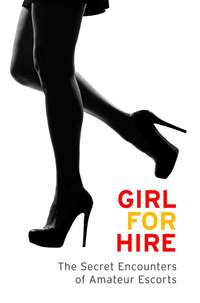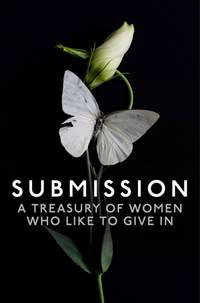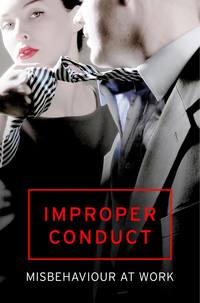
Полная версия
Underground
‘And you blame him?’ My cousin, Vanessa. Long hours spent playing in Alice’s garden, when she was in her middle age, and Vanessa and I were, for a time, all each other had. Vanessa took scissors to her own wrists, but those scars weren’t visible: in that carriage, she was in her twenties, footloose and free of those fancies that people seem so eager to be free of.
‘Not everybody feels like you do, you know.’ Arnold, the first boy I ever loved, cancer of the insides, a spread that lost all track of its origin point.
‘And not everybody is quite so contentious.’ Samir, from the school I once taught in, while trying to make ends meet between novels. Colleague, first reader, friend, infection that rendered him first slightly stilled, then completely static.
‘Don’t remember Gregory much, then, I take it?’ Adelle, agent, dedicated smoker who overcame the odds of the smoker’s lot and died, elderly, in a crash.
‘As much as I need to,’ Ronnie said. Cutting through them all. Ronnie, who died because – as he said in the letter that he left his friends, which we all gathered around to read in the week following his death – he loved too much. His smile was pervasive, able to somehow commit to whatever situation we found ourselves in: that same smile, somehow consistently appropriate. Even then, with my impending.
I pulled him to one side. ‘How did you deal with this?’ I asked.
‘The parade? I decided that everything’s a parade now. One big to-do.’
We left the city, or the innards of the city. The part that feels as though it’s inescapable when you’re inside it, and then so alluring as to be almost unreachable when you’re not. The built-up gave way to the suburbs, the built-down: two-storeys, bungalows, flats above shops. Comfort and ease; the love handles of my city.
A memory, of Alex poking my sides, before I got ill. Telling me, ‘Well, this is a new addition.’ My stomach, his finger sinking into pink flesh. ‘Nobody told me we were expecting.’
‘I don’t know why you stayed with him,’ Ronnie said, reading my mind.
‘I didn’t ask you,’ I said. Maybe I spat my words, defensive, because Ronnie looked affronted; but still, his lovely smile essentially formed his face for itself.
‘You lived out here, didn’t you?’ he asked me.
‘Once. You didn’t.’
‘Thank God. I died before I could pretend that I wanted to.’ Snark, smirk.
‘I did actually want to, you know.’
‘You didn’t know what you wanted.’ His smile changed. Have you ever seen somebody who looks so happy, suddenly so sad? Or maybe not sad, but withdrawn; understanding, empathic. ‘It’s funny, this. Leaving somewhere. Moving on. The past, going into a place you haven’t been yet.’
The train stopped. Hayes and Harlington. Last stop before Heathrow.
Ronnie looked to the doors. My father, definitely him this time, standing there. In the hat that he used to wear, the perfectly pressed suit. His lip a line, a crease, in an otherwise creaseless face.
‘I’ll leave you two alone,’ Ronnie said. He squeezed my arm, near my wrist; and Alice waved at me, and my mother kissed my cheek. Everybody else faded away, until there was just me and him, him and me, in this carriage, thundering past the houses, on its way.
‘I lived in a house near here,’ I said to him. He sat opposite me, and he did that affectation with his trousers: hitching them slightly, so that they didn’t catch on his socks; so that a glimpse of his ankles could be seen, below the braces on his socks. ‘The first time that I moved in with somebody, it was here.’
‘Nice enough area,’ he said. ‘I remember coming here when you were a kid. There was a shop. For your models.’ I used to build Airfix models. A Sopwith Camel with my grandfather, who saw them during the war. Glue on my fingers, and I would peel it off in what felt like sheets. My father watching us, somehow envious of the relationship I had with him. I didn’t know who he was more jealous of. ‘How long’s this line been open, then?’
‘A year or so,’ I replied. He nodded. Information, not good or bad; just useful. ‘I loved him,’ I said. My father didn’t blink.
A pause, as pregnant as any I have ever experienced.
‘It’s different,’ he finally said. ‘Than what you expect.’
‘What is?’
‘Where you’re going.’ He moved to stare out of the window, pushing his face to the glass so that he could see along the track as we followed a bend.
‘Did you have this?’
‘Everybody has this.’
‘So who was at yours?’ I felt petulant. As if, if I kept him talking, maybe I could stay alive for longer. Maybe I could prolong the inevitable; the succumbing.
‘Oh, you know. Your Uncle Jackie, he was there. My friends. Some of the boys from the Rose.’ He took his hat off. His hair a fine dusting. ‘Your grandfather.’
‘What did he say to you?’
He examined the insides of his hat. All the secrets of life, in there. ‘He said that he didn’t care what we’d never spoken about. He said that it didn’t matter, in the end.’ He stood up. I distinctly remember it: his standing as punctuation, perfectly timed with the train’s arrival; the slowing, the coasting, towards the airport’s station. ‘That’s what I would say, Gregory. I’ve read your books. I like to think that I know the measure of you.’ The train stopped in a tunnel, briefly. In the dark, waiting for a platform; for an ending. Good to know that some things never change. ‘We should go,’ he said.
‘I don’t know how I feel,’ I told him.
‘I don’t think you should know.’
I followed him, off the train, and to the platform. Through the windows, I could see something ill-defined: a person, a man, left on the train. Sitting very still in his seat, waiting to be found. And when that body was found, it would cause a delay. I felt guilty then, in that British way that we feel guilt for our actions altering the lives of those we don’t know; but then the trains would run to schedule again, and all would be well.
Alex would be called to identify, because there was only really one number in the body’s telephone that mattered; and he would stand back, hand over mouth. Surprised, but not surprised. He would say that I was a friend of his, I’m sure.
It didn’t matter.
One day, he would die: and he would have his own parade. His own things left unsaid; his own regrets.
I wondered if I would be called upon to visit him; and if I would, then, refuse.
My father’s stride, through the station, towards the exit. I watched him, slightly behind. I felt myself younger, then; in my twenties. Scared, afraid. My hands in my pockets.
He turned to look at me. ‘There he is,’ he said, nodding. His thin mouth a satisfied smile. ‘There he is.’ He reached his hand out for me, and, ‘Come with me.’
I slipped mine – so young again, the knuckles smooth, taut – into his; and I succumbed, to a mutual whatever.
DISTRICT
Blackfriars
Matthew Plampin
4 January 1892
The president arrived in the lobby at a brisk pace, his boot heels clacking down the marble staircase. He was exactly as he’d been described: tall and uncommonly thin, about sixty years old, with a broad forehead and a silvery, scrupulously neat beard. His suit was black, cut close and worn with a frilled dress shirt, an eccentric touch that somehow increased the severity of the overall effect. The clerk at the desk – who’d been eyeing Merrill from time to time, as if suspecting that he might try to pocket an inkwell – was off his stool immediately, retrieving coats and hats from a small chamber beside the doors. Merrill rose to his feet, doing his best to appear alert and useful. Uncle Bob, descending a few feet behind the president, gave him a weary look.
‘This is James Merrill, Mr Leyland,’ he said. ‘My nephew.’
The clerk helped the president into a black overcoat, which was buttoned up to the neck, and then handed over a spotless black topper. After fitting this carefully on his head, the president turned towards Merrill for a momentary appraisal. There was an odd blankness about his eyes, and when he spoke his voice was devoid of interest.
‘He dresses well.’
Uncle Bob accepted his own coat and shrugged it on. ‘Dressing,’ he replied, ‘Merrill can do.’
Before joining the National Telephone Company Uncle Bob had been an officer of infantry, ranking somewhere in the middle, and you could see it in him now – that deep-dyed regard for hierarchy that soldiers were prone to have. Attending on this Mr Leyland, he was every inch the loyal lieutenant, moving aside smartly as the president made for the doors. Only then did Merrill realize that someone else had come down with them, another junior like himself; this man was older, though, thirty-five at least, blond-whiskered and bordering upon portliness.
‘I am Mr Carlens,’ he said, skirting the desk to fetch a grey coat and bowler. ‘Mr Leyland’s private secretary.’
Was that condescension in Mr Carlens’ expression – a shade of scorn, even? Merrill could hardly blame him if it was. His situation was plain enough, there for anyone to divine: that stale story of hapless youth, surrendered to an upstanding family elder for correction and supplied with an unearned career in business for which he was proving markedly ill-suited. Merrill wasn’t at all proud of this. There were days, in truth, when he could scarcely bear the sight of his own reflection.
The two juniors went out into the dull January evening. Uncle Bob had been summoned to Leyland’s office in the City only an hour or so before, to escort him back to the telephone company’s premises on Temple Lane. No cab was being called, however, nor was there any sign of the grand private carriage that the president was said to keep on hand both day and night. Merrill saw that Leyland and Uncle Bob had turned to the left, and were following the crowds that tramped down towards Cannon Street.
‘Are we not—’ he began. ‘Forgive me, Mr Carlens, but isn’t there a—’
‘Mr Leyland wishes to take the underground.’
Merrill managed to contain his disbelief – merely to nod, as an unquestioning subordinate should do. Frederick Richards Leyland was, without doubt or exception, the richest man in England. Some at the telephone company claimed that by the end of that year he would be the richest man alive. He had millions in the bank. Carriages and country houses. A Kensington mansion in which the finest modern paintings were displayed like stamps in an album.
‘This surprises you,’ Carlens observed.
They started out in pursuit of their employers. Merrill watched the president’s pristine topper shimmer as it passed beneath a street lamp. ‘I haven’t been with the company very long, Mr Carlens. There is much I do not—’
‘It is true that Mr Leyland is averse to crowds, generally speaking.’ The private secretary lowered his voice; Merrill sensed that he relished his position at the president’s side and the insights it permitted. ‘There are a good number who conduct their business hereabouts whom he would not care to meet. Who might well seize upon the chance to speak with him.’ Carlens surveyed the hundreds streaming around them: this world of men, emptying out at the day’s end, marching off to stations and omnibus stands. ‘The chances are slight, of course – but still, eyes peeled, eh?’
Cannon Street was broad and busy, bending away to the right; beyond the buildings was a clipped view of St Paul’s, the half-dome almost lost in the dark, starless sky. Directly ahead, among the bright shop fronts, a steady procession of people was disappearing between a stationer’s and an optician’s, down a tiled stairway into the underground. Merrill knew the District line with regrettable intimacy. It was an unchanging fact of his existence, ridden from Earl’s Court to Temple and back again: an hour eaten out of each and every day. Routine had numbed him to the point where he didn’t usually notice how it was. That evening, though, as he left the street and hurried onto the steps, he saw it as the president must surely be seeing it. The cracked and grubby tiles. The cement floor, littered with flattened cigarette ends and scraps of paper. And the blasted smoke, that gritty, metallic smell, tobacco and coal intermingled, hazing the air and making the subterranean ticket hall yet dingier.
The president and Uncle Bob had stopped in the middle of this low-ceilinged atrium, a pair of ill-matched rocks lodged in the ceaseless flow of commuters. Uncle Bob, clearly uncomfortable, was tugging at his grizzled moustache. Leyland was taking in his surroundings with evident distaste, coughing genteelly in the muddy atmosphere.
‘Tickets, Merrill,’ said Uncle Bob, as if this was obvious and really should have been guessed. ‘First class, back to Temple.’
Chastened, Merrill went to join the queue. Five windows were open at the office, and perhaps two hundred people presently trying to pay. He could only choose a line and stand in it. Around him was a dense, lulling murmur, several dozen shifting conversations, their words blurring together. His thoughts wandered to a common in high summer, near a friend’s house at Richmond; to Emily in her blouse and boater, and that song they’d all sung together: Within the musk-rose bower, I watch, pale flower of love, for thee …
‘Louse!’ someone shouted.
Merrill turned sharply to see a man, a perfectly ordinary-looking man in a blue sack coat, standing up close before the president and yelling in his face.
‘Louse,’ he repeated. ‘Villain – wrecker!’
A companion was trying to restrain him. Carlens strode forward to assist, planting a hand on the shouting fellow’s chest and gesticulating angrily, ordering him away. Uncle Bob was colouring, huffing something under his breath, outraged on their master’s behalf – for Leyland himself seemed entirely unmoved. He was looking across the concourse as if this man in the blue sack coat simply didn’t exist. Seeing he would get no response, the assailant barked ‘wrecker’ for a second time, and asked the president loudly if he understood at all what he had done, what he had destroyed; and then he stalked off furiously towards the street.
Merrill returned his gaze to the ticket office. Not that slight a chance then, Mr Carlens! he thought. He wondered what lay behind this little confrontation. There was much talk about Frederick Leyland over at Temple Lane. President of the National Telephone Company, Merrill had learned, was but one of his positions. Leyland was also a major figure in electricity, having a sizeable stake in Edison, and a ship-broker with a huge transatlantic fleet. This was the origin of his wealth, in fact, numbering upward of thirty steamers. The very idea of it boggled the mind. It was said that his ambition knew no boundary or scruple – that the shipping company up in Liverpool had been won through the betrayal of his mentor, and he had conducted himself ever since with absolute ruthlessness, leaving a trail of crushed competitors in his wake. And every company director bested in negotiations and lawyerly manoeuvrings had an operation behind him – sales merchants and accountants and clerks, each with his wife, his infants, his poorly parents. A lot of livelihoods. A lot of lives.
The tickets were purchased distractedly, Merrill almost forgetting to buy first class. It was hardly his habit. Uncle Bob was talking with determination about some subject or other, in order to dispel any lingering unpleasantness. The four men started down the central staircase to the platforms. Merrill was regarding Leyland more closely than ever, studying the precise arrangement of the hair above his collar, which had the look of having been trimmed that same morning. A warm, dirty wind gusted up to meet them. The president coughed once more, against his hand.
‘Already, Colonel,’ he remarked to Uncle Bob in his detached manner, ‘I believe you can see quite clearly where the problem lies.’
They were attracting notice. You couldn’t fail to spot it; Leyland was being recognized. Merrill recalled the more salacious rumours that bubbled through the Temple Lane offices – rumours that claimed it was not merely companies their president had wrecked. This was a man with a great appetite for women, as brimming with lust as he was empty of passion, and with the means to make any obstacle to his desires vanish; and unburdened, furthermore, by any guilt or self-reflection upon the matter.
‘He doesn’t care who knows about his activities,’ one especially talkative junior surveyor had confided, equal parts scandalized and impressed, over an after-hours mug of porter. ‘It doesn’t trouble him a jot.’
Such behaviour, the surveyor had continued, had naturally added to the number of Leyland’s foes. There had been a wife at one point, a beautiful woman, well-liked and decent, who was driven out in the coldest, cruellest fashion. Leyland’s essential nature was one that could not help but repel. Over the years he had suffered vicious ruptures with everyone from his doctor to his decorator.
‘His decorator?’
‘That was a while ago now. A dreadful to-do. The plan for his dining room went awry, you see, and they disagreed over the bill. Yankee fellow it was, a Mr Whistler. Friend of the wife’s as well. It’s said that Leyland threatened to take him out and whip him in the street.’
Merrill followed art. It was one of the reasons for his family’s concern. ‘You mean James Whistler, the artist?’ he’d asked. ‘The painter of nocturnes, who has a show coming at the Goupil Gallery?’
This had met only with a shrug.
The party headed onto the westbound platform. It was filled with City men, standing alone mostly, buried in their newspapers or simply staring at their shoes. The air was yet more turbid than in the concourse. Spherical lamps hung at intervals along the tiled ceiling, but the smoke soaked up their light, obscuring them to the point where the furthest were reduced to fogged, yellowish smears. Weaving between the other passengers, Leyland led them beneath the large, plain clock that hung at the platform’s midpoint. Then he went to the edge and beckoned for Uncle Bob to join him. They began pointing down at the tracks, conversing in low, purposeful tones.
Carlens stayed in the middle of the platform, monitoring those nearby – a couple of whom were directing sidelong looks at the president.
Merrill stood next to him. ‘Train shouldn’t be more than a minute or two.’
The private secretary wasn’t listening. ‘You see now,’ he said, nodding towards Leyland, ‘what this is about.’
Merrill kept quiet.
‘Electricity,’ Carlens enlarged. ‘Or rather electrification. Mr Leyland is always thinking of the future. You know of his share in the Edison company? He sees this line being powered that way, and lit that way too. He sees telephones connecting the stations – connecting the platforms and the offices. Vast improvements, Mr Merrill. Vast indeed.’
Merrill crossed his arms, frowning slightly as if in contemplation. He was impressed, rather to his annoyance, and stung by a sudden and profound sense of inadequacy. He simply could not think in these terms. His grand idea, the sum of his life’s ambition, was that he might write for the stage – and that was receding into the distance at a rate of knots. Now he sought chiefly to keep his damned family at bay, and escape the censure of Uncle Bob. This long-limbed black-clad rake, so sinister and ridiculous, had plainly wrought more than his share of harm – but he had vision. It was the only word. Leyland saw the shape of things to come, and the practical changes that would affect the progress of cities. Of entire nations.
‘There’s gold down here,’ Carlens went on, satisfied by Merrill’s reaction, ‘in these wretched tunnels. Mr Leyland perceives it clearly. A rich seam of it. He changed shipping, you know, changed it for good, and now he’ll change the underground. Make his fortune all over again, I shouldn’t wonder.’
‘And the boon for London will be incalculable,’ Merrill added. ‘I mean to say, Mr Leyland will – well, he will be doing the people of this city an enormous service.’
Carlens was eyeing him with a certain pity, as if noting a lack. He inclined his grey bowler in acknowledgement. ‘Quite so.’
A high-pitched whistle sounded off to the right, and light broke around a corner of the tunnel. A few seconds later the squat, sooty locomotive heaved itself into the station, sending banks of smoke and steam rolling through the still mistiness of the platform. Its wheezing chugs and the prolonged whine of its brakes made any further conversation impossible. Leyland and Uncle Bob stepped back, for a moment reduced to silhouettes; then Uncle Bob went after one of the leading carriages, following it a few yards along the platform before opening a door for the president. As the juniors hurried up behind them, Merrill noticed the ‘1’s stencilled on the carriage’s other doors: first class. There was less competition for seats here, most of those out on the platform making for the other, inferior sections of the train. They had a compartment to themselves – unheard of in second or third class at this time on a Monday. Merrill embarked last and took a place on the left, directly inside, facing Carlens. The furnishings, he noticed, were a little fresher and better made; the upholstered bench seats a few inches further apart. The smell was the same, though: tobacco ash and gas, and the ever-present smoke. He reached over to close the door.
There was a shout from the platform guard and the blast of a pea whistle, and the underground train pulled from the station. Once they were out in the tunnel, Uncle Bob asked Leyland about the City and South London Railway, one of the new, deep-running lines, which had been using electric traction locomotives for over a year. Leyland was disdainful. It was a ramshackle operation, he replied, unreliable and poorly implemented. The generators barely provided sufficient power for the engines – there was nothing left for lighting or—
This bout of coughing seemed to catch him unawares. It sounded different, constricted, as if his throat was tightening. The carriage swayed upon the track; the single gas fitting hissed softly above them. Merrill looked away into the inky sheen of the window, just as the train arrived at Mansion House. The platform here was as busy as the one at Cannon Street. Two well-fed managerial types advanced on their compartment. Carlens held the handle, keeping them out, waving them on with his other hand. The gentlemen persisted, but the private secretary held firm. Eventually the whistle blew, and with shakes of the head they went to board elsewhere.
‘Are you well, sir?’ asked Uncle Bob.
‘Quite well,’ Leyland answered hoarsely, between coughs. ‘It will pass.’
The train continued westwards. Recovering himself, the president addressed Uncle Bob, sketching the outlines of a new concern that would be able to take full advantage of this opportunity he had detected. Merrill gathered that it would be founded on the Edison company, which would be bought out, gulped down whole, much as Leyland had done with his shipping firm in Liverpool.
‘Edison can be improved,’ he said. ‘Expanded. I’m convinced of that. This underground railway will only grow, Colonel, and every last foot of it will require electrification.’
Uncle Bob was enthusiastic. With Leyland presiding, he said, it would surely work; as with so much in business, the vital elements would be leadership and sheer force of will, and the president possessed both of these in abundance. On and on he went. Merrill began to loathe him a little for his sycophancy.
Leyland made a sound, as if in interjection, raising one of his bony hands suddenly from his lap. Uncle Bob came to an obedient halt. They all waited patiently to see what comment or insight he might offer.
Nothing came. The raised hand began to tremble, Leyland’s strange, blank eyes popping wide. Merrill glanced over at Uncle Bob. He was sitting forward, hands on his knees like Ingres’ Monsieur Bertin, his ruddy face hidden in the shadow of his hat brim – plainly concerned, yet reluctant to act in case this prompted his master’s ire. Leyland spoke very faintly; a squeal of steel from somewhere below drowned out his voice.









